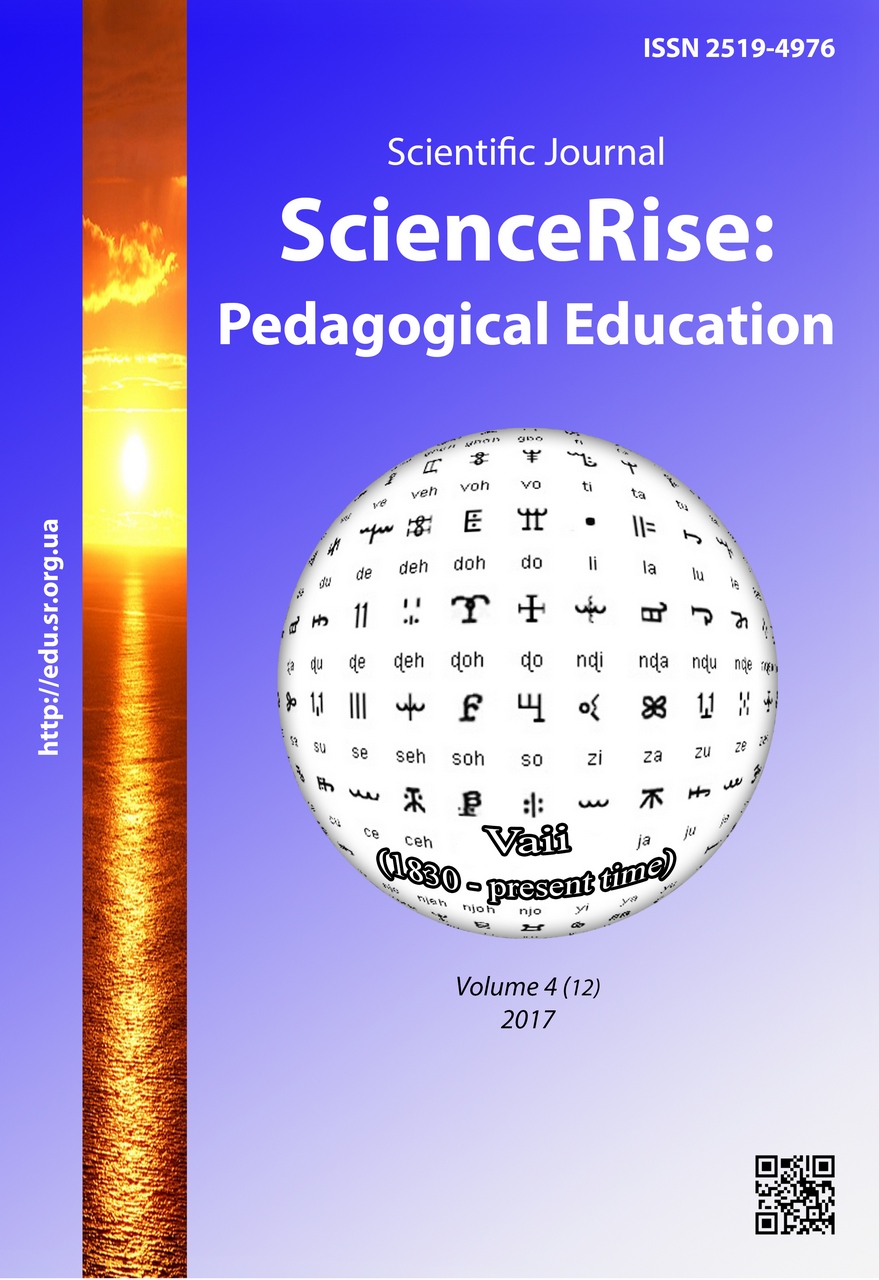Formation of transdisciplinary competences in doctors
DOI:
https://doi.org/10.15587/2519-4984.2017.100417Keywords:
multidisciplinary, transdisciplinarity. competence approach, group learning, circle method, integral interaction, postgraduate medical educationAbstract
During the third millennium the humanity faced the multilevel problems. Their solutions require specialists with new level of thinking. All the attempts to solve these problems on transdisciplinary level do not give the appropriate result, because usually specialists don’t go further beyond the boundaries of their subject areas. Since 1970 the transdisc pi inary approach has been developed, within the framework of which the scientific worldview is expanding, and problems are considered at several levels simultaneously without limitation, by the limits of any one scientific discipline. However, the methods of transdisciplinary competences forming in specialists still remain unclear. The authors suggested the usage of a group “circle” approach in the training of practicing doctors and interns, who are trained at the stages of postgraduate medical education and continuous professional development. The condition of pedagogical technology is that experts (lecturers) from different subject areas and trainees (doctors-specialists), collaborate while solving the problems. Within the “circle” the situation is analyzed on the physical, legal and psy chological levels and the search for the most optimal solutions is performed. At the same time, doctors, Methodists, lawyers and psychologists create a common, transdisciplinary space that provides self-learning and mutual learning of all the participants. As a result:
1) The technology of group induing ‘circle method ’ is offered ai joint paroopanoo of experts of a different profile:
2) In the course of the wort participants significant expanded the horizons of their own knowledge:
3) The acquired skills enabled specialists to use the group method subsequently for integrating cognitive spaces and finding the causes of emerging problems at different levels.
References
- Toward knowledge societies (2005). UNESCO World Report. Paris: UNESCO, 239. Available at: http://unesdoc.unesco.org/images/0014/001418/141843r.pdf
- Hilbert, M. (2012). How to Measure «How Much Information»? Theoretical, Methodological, and Statistical Challenges for the Social Sciences. International Journal of Communication, 6, 1042–1055.
- Kurzweil, R. (2005). The Singularity Is Near. New York: Viking, 652.
- Kronberg Declaration on the Future of Knowledge Acquisition and Sharing (2007). UNESCO. Kronberg. Available at: http://www.ifap.ru/ofdocs/rest/kronberg.pdf
- Voronenko, Ju. V., Mintser, O. P. (2013). Rizik viniknennya osvitn'oi singulyarnosti: tendentsi ta mozhlivi naslydky. Medichna informatika ta inzheneriya, 1, 4–11.
- Mintser, O. P. (2003). Informatizatsiya meditsinskogo obrazovaniya. Ukrains'kiy medichniy chasopis, 5 (37), 83–89.
- Kuhn, T. S. (1962). The Structure of Scientific Revolutions. Chicago: University of Chicago Press, 212.
- Kiyashchenko, L. P., Moiseyev, V. I. (2009). Filosofiya transdistsiplinarnosti [The philosophy of transdisciplinarity]. Moscow: IFRAN, 205.
- Nicolescu, B. (2006). Transdisciplinarity – past, present and future. Moving Worldviews: Reshaping sciences, policies and practices for endogenous sustainable development. Holland: COMPAS, 142–166. Available at: http://basarab-nicolescu.fr/Docs_articles/Worldviews2006.htm#_ftn1
- Nicolescu, B. (2005). Toward Transdisciplinary Education and Learning. Science and Religion: Global Perspectives, 1–12.
- Declaration of the United Nations Educational, Scientific and Cultural Organization "Higher Education in the 21st Century: vision and action" (1998). Paris. Available at: http://www.nic.gov.ru/ru/docs/foreign/other/declaration_1998
- ARISE 2 (Advancing Research in Science and Engineering) (2013). Cambridge: American academy of Arts and Sciences, 54. Available at: https://www.amacad.org/multimedia/pdfs/publications/researchpapersmonographs/arise2.pdf
- Morin, E. (1990). Introduction a la pensee complexe. Paris: ESF editeur, 158.
- Kolesnikova, I. A. (2014). Transdisciplinary strategy of lifelong education research. Lifelong Education: The XXI Century, 8 (4). Available at: http://lll21.petrsu.ru/journal/getpdf.php?id=2642 doi: 10.15393/j5.art.2014.2642
- Information and communication technologies in teacher education (2005). Moscow: Izd. INT, 288.
Downloads
Published
How to Cite
Issue
Section
License
Copyright (c) 2017 Volodymyr Krasnov, Olena Shcherbinska, Orest Sichkoriz

This work is licensed under a Creative Commons Attribution 4.0 International License.
Our journal abides by the Creative Commons CC BY copyright rights and permissions for open access journals.
Authors, who are published in this journal, agree to the following conditions:
1. The authors reserve the right to authorship of the work and pass the first publication right of this work to the journal under the terms of a Creative Commons CC BY, which allows others to freely distribute the published research with the obligatory reference to the authors of the original work and the first publication of the work in this journal.
2. The authors have the right to conclude separate supplement agreements that relate to non-exclusive work distribution in the form in which it has been published by the journal (for example, to upload the work to the online storage of the journal or publish it as part of a monograph), provided that the reference to the first publication of the work in this journal is included.








